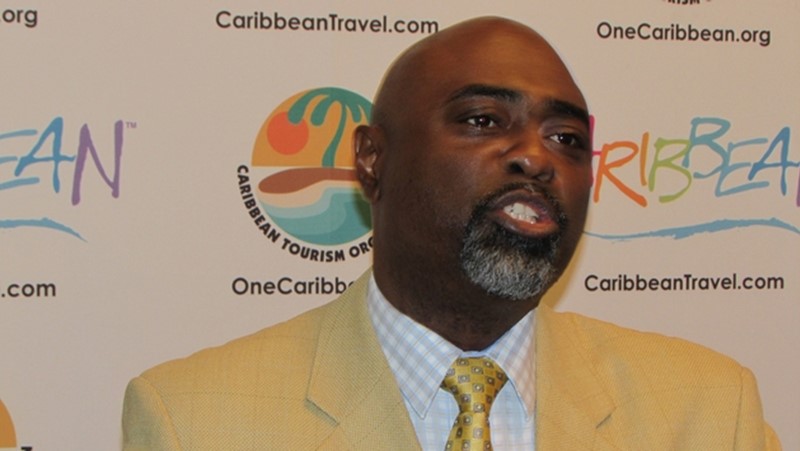
Caribbean destinations must “operate like businesses” and focus on their inherent and individual strengths to surmount significant regional challenges and remain competitive with global vacation destinations, said Alex Zozaya, chief executive officer of Apple Leisure Group.
Speaking as the keynote presenter at this week’s Caribbean Tourism Organization (CTO)’s “State of the Industry” conference in St. Thomas, U.S. Virgin Islands, Zozaya offered a view of regional tourism that highlighted opportunities while also warning of dwindling significance for destinations unwilling to cast aside politics and bureaucracy to focus on challenges that range from high energy costs to restrictive policies that limit visitor access to wider regional travel.
Zozaya’s comments come amidst several key conference developments. Richard Sealy, Barbados’ minister of tourism, was elected CTO’s chairman, succeeding Beverly Nicholson-Doty, the U.S. Virgin Islands' commissioner of tourism.
Officials also revealed that Caribbean tourist arrivals in the first six months of 2014 increased 4.3 percent compared with the same period last year, a figure in line with overall global tourism growth, said Hugh Riley, CTO’s secretary general. Puerto Rico, the Bahamas, the Cayman Islands, Aruba, Belize and St. Maarten all reported increases in U.S. traveler arrivals while the Dominican Republic, Grenada, Saint Lucia and Antigua & Barbuda all registered double-digit growth.
Yet Zozaya’s address was particularly prescient due to his company’s importance as a Caribbean vacation supplier. Apple’s retail travel agency, resort and destination management businesses generate one of every 10 annual visitors to the Caribbean, he estimated.
Caribbean destinations have “tremendous potential” because of North America’s proximity to the region but have yet to fully capitalize on that advantage, said Zozaya. “We have a market of 300 million in North America that has created only 12 million tourists a year. I don’t see why we can’t attract 30 million tourists a year,” he said.
“The biggest competition for Caribbean tourism is the percentage of North Americans who have never traveled outside of the U.S.,” Zozaya added.
Factors that include inconsistent visa regulations and policies, high taxation and investment barriers, inadequate branding and even insufficient reporting of tourism statistics loom as obstacles to growth among Caribbean destinations, Zozaya said.
“We have challenges with not only the quality of data,” said Zozaya, but with its timeliness as well. “Even if we are going to have bad statistics, they have to come out more quickly,” he joked.
High energy costs in Caribbean nations translate into higher costs for suppliers and by extension, for travelers. “On some islands we pay more for energy costs than we do for [employee] payroll,” he said. “We should be ashamed of that.”
Zozaya also urged Caribbean destinations to “be pragmatic and commercially driven,” setting aside politically based decision-making. “There is so much bureaucracy in the Caribbean,” he said. “If [destinations] could ignore consequences in the political arena, they could move much faster. Run your region like a business.”
Caribbean destinations should also focus on individual characteristics that distinguish each island, Zozaya said. He identified Spain as a country that has successfully delineated the distinct experiences tourists can expect to encounter within each of its various regions. He said many tourists have a “blurry” image of the Caribbean destinations and believe each is identical to all of the others.
“Spain has been able to make it clear that there are distinct differences between Barcelona and Marbella,” he said. “Tourists traveling to the Caribbean do not remember the differences between different islands,” he said.
A handful of Caribbean destinations have pursued initiatives that are in line with Zozaya’s mandate to focus on distinguishing characteristics. Earlier this year Grenada launched a new branding campaign entitled “Pure Grenada, the Spice of the Caribbean.”
“It was felt that Grenada needed to properly distinguish itself as a tourism destination,” said Rudy Grant, CEO of the Grenada Tourism Authority.
“We do not believe that at a time particularly when resources are being significantly challenged that we should just engage in mass tourism marketing activities,” said Grant. “Indeed Grenada is not a mass tourism destination. We realize we cannot be all things to all people. We look at our main attributes seek to utilize those by having effective niche marketing in our major areas – dive, soft adventure, sailing, romance and cruise.”


